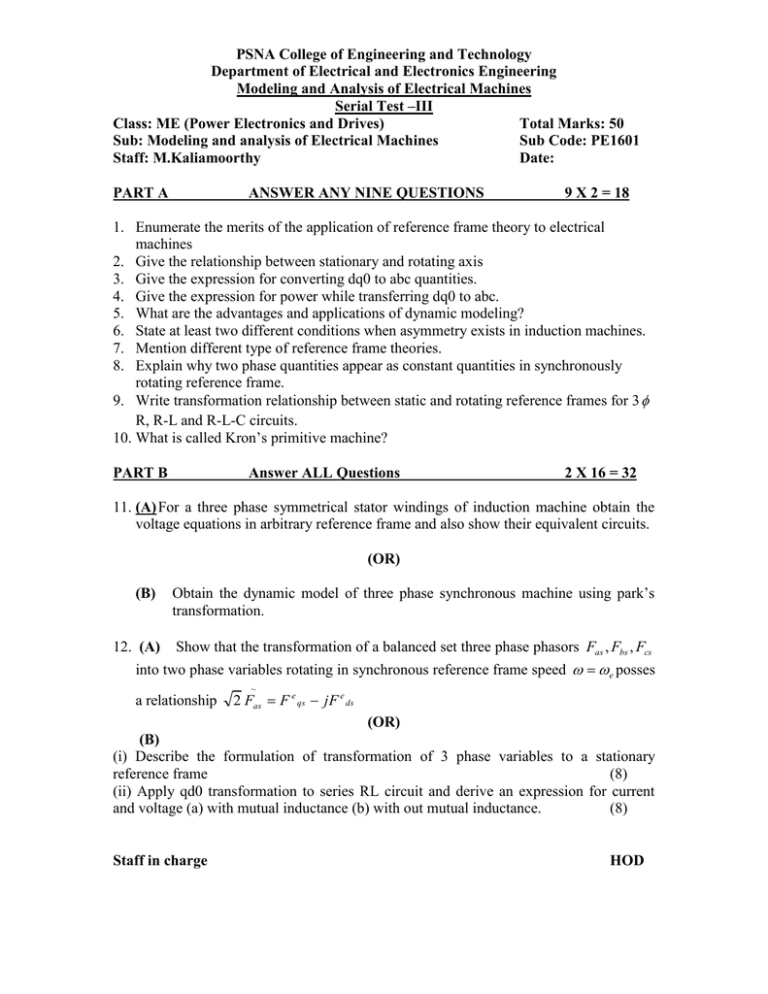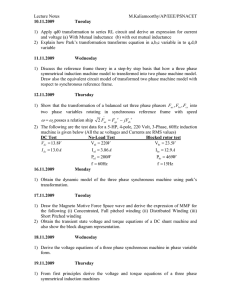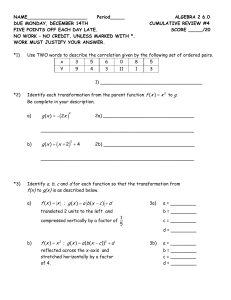Series Test-3
advertisement

PSNA College of Engineering and Technology Department of Electrical and Electronics Engineering Modeling and Analysis of Electrical Machines Serial Test –III Class: ME (Power Electronics and Drives) Total Marks: 50 Sub: Modeling and analysis of Electrical Machines Sub Code: PE1601 Staff: M.Kaliamoorthy Date: PART A ANSWER ANY NINE QUESTIONS 9 X 2 = 18 1. Enumerate the merits of the application of reference frame theory to electrical machines 2. Give the relationship between stationary and rotating axis 3. Give the expression for converting dq0 to abc quantities. 4. Give the expression for power while transferring dq0 to abc. 5. What are the advantages and applications of dynamic modeling? 6. State at least two different conditions when asymmetry exists in induction machines. 7. Mention different type of reference frame theories. 8. Explain why two phase quantities appear as constant quantities in synchronously rotating reference frame. 9. Write transformation relationship between static and rotating reference frames for 3 R, R-L and R-L-C circuits. 10. What is called Kron’s primitive machine? PART B Answer ALL Questions 2 X 16 = 32 11. (A) For a three phase symmetrical stator windings of induction machine obtain the voltage equations in arbitrary reference frame and also show their equivalent circuits. (OR) (B) Obtain the dynamic model of three phase synchronous machine using park’s transformation. 12. (A) Show that the transformation of a balanced set three phase phasors Fas , Fbs , Fcs into two phase variables rotating in synchronous reference frame speed e posses ~ a relationship 2 Fas F e qs jF e ds (OR) (B) (i) Describe the formulation of transformation of 3 phase variables to a stationary reference frame (8) (ii) Apply qd0 transformation to series RL circuit and derive an expression for current and voltage (a) with mutual inductance (b) with out mutual inductance. (8) Staff in charge HOD

